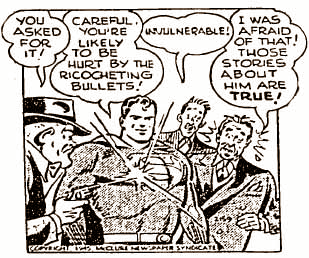Why big studies say supplements don't work
People who use supplements have a less healthy lifestyle. Taking a supplement makes people feel invulnerable, and as a result they eat less healthily and exercise less. Psychologists at the Southern Taiwan University discovered why, in large-scale epidemiological studies, supplements often have little or no positive health effects.
Failing expectations
Many supplements show interesting effects in laboratory studies, but in big studies they don't seem to make their users healthier.
Ginkgo biloba is a good example. In animal studies, it strengthens bones, boosts sex drive, deactivates estradiol [J Steroid Biochem Mol Biol. 2006 Aug;100(4-5):167-76.], extends lifespan, delays muscle aging and inhibits cortisol. There are many smaller studies in which ginkgo has been shown to delay mental aging and to protect against dementia.Nevertheless, when epidemiologists monitor large groups of people for an extended period, they often can't show convincingly that ginkgo reduces the likelihood of dementia. [Cochrane Database Syst Rev. 2009 Jan 21;(1):CD003120.] A recent review concluded that ginkgo is safe and does have a positive effect; but that the effect is so modest that it's not clear whether it really helps. [BMC Geriatr. 2010 Mar 17;10:14.]
The Taiwanese turned to psychology in their search for an explanation of the absence of clear positive epidemiological effects of supplements, and performed two psychological experiments.
Study 2
The first experiment involved 82 subjects, aged between 18 and 46. They all had to take a pill. Some subjects were told that they were getting a multi-vitamin preparation, and the others were told that they were getting a fake pill with no active ingredients.
Afterwards the researchers asked the subjects how vulnerable or invulnerable they felt. They discovered that the subjects who thought they had been given vitamins and minerals were more likely to believe that they wouldn't easily fall ill. According to the researchers, supplements give people 'illusory invulnerability'.
When the researchers let their subjects choose between a healthy meal of organic products or a buffet with obviously calorie-rich food full of sugar and trans fats, the subjects who thought they'd taken vitamins chose the unhealthy buffet more often.Study 2
For their second experiment, the Taiwanese used 68 students, who were also given a pill. Some were told that it contained nothing and the others were told that it contained vitamins and minerals. After taking the pill the subjects had to walk, but were allowed to decide for themselves how far they went and for how long. The researchers observed that the subjects that thought they'd taken vitamins and minerals walked less far.
The table below summarises the findings.
[FONT="]
[/FONT]

[FONT="]
[/FONT]
Conclusion
"People who rely on dietary supplements for health protection may pay a hidden price: the curse of licensed self-indulgence", the Taiwanese conclude. "Policy interventions that remind individuals to monitor the licensing effect may help translate the increased use of dietary supplements into improved public health."
Source:
Psychol Sci. 2011 Aug 1;22(8):1081-6.
People who use supplements have a less healthy lifestyle. Taking a supplement makes people feel invulnerable, and as a result they eat less healthily and exercise less. Psychologists at the Southern Taiwan University discovered why, in large-scale epidemiological studies, supplements often have little or no positive health effects.
Failing expectations
Many supplements show interesting effects in laboratory studies, but in big studies they don't seem to make their users healthier.
The Taiwanese turned to psychology in their search for an explanation of the absence of clear positive epidemiological effects of supplements, and performed two psychological experiments.
Study 2
The first experiment involved 82 subjects, aged between 18 and 46. They all had to take a pill. Some subjects were told that they were getting a multi-vitamin preparation, and the others were told that they were getting a fake pill with no active ingredients.
Afterwards the researchers asked the subjects how vulnerable or invulnerable they felt. They discovered that the subjects who thought they had been given vitamins and minerals were more likely to believe that they wouldn't easily fall ill. According to the researchers, supplements give people 'illusory invulnerability'.

|
For their second experiment, the Taiwanese used 68 students, who were also given a pill. Some were told that it contained nothing and the others were told that it contained vitamins and minerals. After taking the pill the subjects had to walk, but were allowed to decide for themselves how far they went and for how long. The researchers observed that the subjects that thought they'd taken vitamins and minerals walked less far.
The table below summarises the findings.
[FONT="]
[/FONT]

[FONT="]
[/FONT]
Conclusion
"People who rely on dietary supplements for health protection may pay a hidden price: the curse of licensed self-indulgence", the Taiwanese conclude. "Policy interventions that remind individuals to monitor the licensing effect may help translate the increased use of dietary supplements into improved public health."
Source:
Psychol Sci. 2011 Aug 1;22(8):1081-6.
